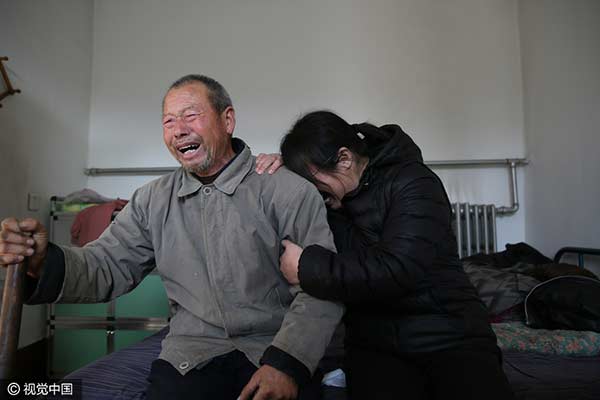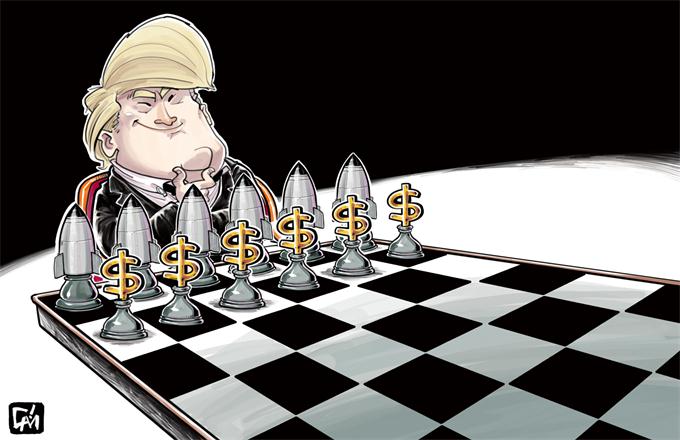Govt obligated to compensate for anguish caused by power abuse
 |
|
The father and sister of Nie Shubin react after hearing Nie is exonerated in Shijiazhuang, Hebei province, Dec 2, 2016. [Photo/VCG] |
THE FAMILY OF NIE SHUBIN asked for a State compensation of 13.91 million yuan ($2 million) on Wednesday, of which 12 million is for mental anguish and emotional distress. Nie was executed in 1995 after Hebei provincial high people's court found him guilty of rape and murder. On Dec 2, a new decision by the Supreme People's Court cleared Nie of any crime. Beijing News comments:
Should there be compensation for mental suffering as a result of a miscarriage of justice?
Before 1986, the law only stipulated compensation for damage to property, harm to physical well-being, and loss of personal liberty. There was no mention of mental pain and suffering.
It was in 1986 that the Civil Law first mentioned mental anguish. In 2002, the State Compensation Law included mental anguish, but strictly speaking, such payments are solatium, or consolation money.
A later judicial explanation said that such payments should not exceed 35 percent of the State compensation a person receives for damage to property or loss of personal liberty.
In several special cases, the victim received solatium higher than this, but they were exceptions.
It would be giant progress if the standards of compensation for mental anguish and emotional distress are raised, because if State employees violate people's rights while performing their duties, the government has an obligation to compensate the victims. Moreover, the mental suffering that results from abuses of power can be very serious, even more serious than the physical harm done.
Nie's case shows this loophole is rather big. His family fought for the retrial since 2005 when another suspect claimed responsibility for Nie's alleged offense, and Nie's mother suffered all kinds of difficulties in the process. She deserves a lot of compensation and a formal apology from the State. And there are other cases in which the victims and their families deserve compensation for their mental anguish and emotional distress.
State compensation cannot undo the mental pain suffered by victims and their families, but it can at least help improve their lives a little. Moreover, fair State compensation is necessary to remind government employees not to abuse their powers.
It is time to revise the law and set a clear, fair standard of State compensation for mental anguish and emotional distress.



















